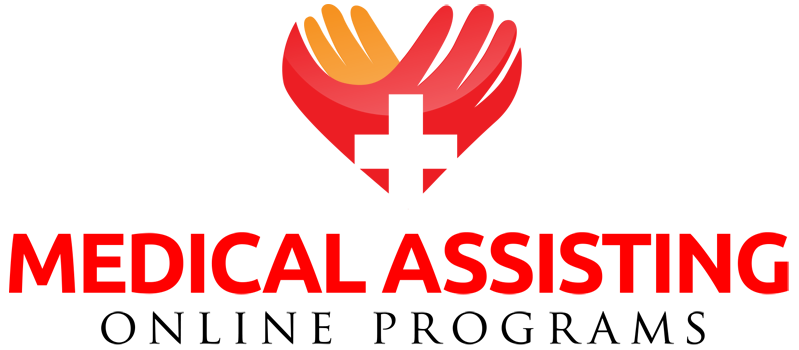There are many reasons people choose a career path. Whatever your reasons for choosing a career in Medical Assisting, one important consideration is the earning potential. Everyone wants to maximize their income; it is up to you to earn a salary that meets your needs and desired level of comfort. As with any career, your salary will directly reflect your value as an employee. To help you earn your highest potential salary, here are some of the factors that influence the remuneration of Medical Assistants.
Your Abilities
All physicians and clinics will have a training program to get you familiar with their policies and procedures. However, in most cases your employer will expect you to be trained and proficient in the duties you will be performing if hired. Try to keep practicing your procedures while seeking employment, and even while currently employed; there are some procedures your employer may ask you to perform only rarely, and it is vital that you are capable.
Volunteering is one way to keep your abilities and practical knowledge fresh. Continuing Education Units (commonly referred to as CEUs) are another, and allow you to become more specialized in your employer’s field of medicine. Quiz yourself, and ask co-workers to quiz you and practice with you to keep your skill set adept and evolving. Re-read your Medical Assisting course textbooks and notes. Above all, be honest about your level of ability; if you are asked to perform a procedure for which you haven’t been trained, or which exceeds your scope of practice, inform your employer that you aren’t able to complete that task and ask to be trained to do so. Your honesty about your ability will let your provider know he/she can trust you, and this will greatly affect your salary.
Education– Then and Now
Your education is important. Obviously you have been trained in general Medical Assisting; demonstrating initiative to continue your education, especially in the field in which your employer specializes, increases your value to your employer, and can be one of the most important factors that influence the remuneration of Medical Assistants.
Choosing courses that contribute to your Continuing Education Units (CEUs) contributes to the betterment of your employer’s practice as well as adding to your skills set and knowledge, by keeping the provider and co-workers informed about changes and discoveries in the field of practice. Certification Makes a Difference. Certification shows a prospective or current employer that you have proven your abilities as a Medical Assistant, as well as your knowledge of national standards for Medical Assisting.
If you become certified before you seek employment, it also shows a desire to aim for a high level of achievement, since you’ve taken the initiative to become certified without it being a requirement of employment. Certification is obtained through the American Association of Medical Assistants (AAMS). They can also help you obtain your CEUs after certification and throughout your Medical Assisting career.
Professionalism in All Ways
Perhaps the single most important of the factors that influence the remuneration of Medical Assistants is professionalism. Your level of professionalism includes your appearance, your manner (both with your employer/co-workers and with the public), your attitude, and your ability. Maintaining a positive attitude and manner are crucial; patients are customers, and will not trust their care to a provider or clinic that doesn’t inspire confidence.
This includes keeping calm in difficult situations, whether dealing with an upset patient, a hurried provider, or during disputes with co-workers. Work to diffuse stressful circumstances instead of becoming upset yourself. Maintain a positive attitude regarding your work life and environment, and do not discuss personal issues at the office or allow them to affect you at work. Think of your job as a haven from your personal life, and try to leave problems at home.
Professionalism also includes your ethics; always do as you’ve been taught is right, and remember your credo: First, do no harm. Safe patient care is your responsibility, and demonstrating a high ethics code absolutely increases your value as an employee. Being a ‘team player’ is another example of professionalism. Be on time to work so others aren’t waiting on you or forced to perform your duties.At every opportunity, try to be available to help your co-workers when they need it.
Appearance Matters!
Your appearance is the first impression you make every day, to your employer as well as the to patients you serve. Medical Assistants are expected to be neat, clean, and professional. When it comes to your clothing, whether your uniform includes scrubs or you wear professional office attire, be sure they are an appropriate fit: this includes length (pants should just cover the top of the shoe, not brush the floor, and sleeves shouldn’t cover any part of your hands) and how tight your clothes are (if your clothes are too baggy, you will look sloppy, and they could interfere with performing your job; too tight will be uncomfortable, restrictive, and inappropriate.) Be sure your nails are trimmed and clean underneath, and that your shoes are clean and in good condition.
If you have long hair, be certain it is worn pulled back from your face, or, preferably, secured in an ‘up-do’ . Makeup and jewelry should be kept to a minimum, and applied professionally. If you have tattoos, they should be covered. A professional appearance reflects well on the provider’s practice, and affects your provider’s decision regarding your salary.
Cross-training… Being Versatile Helps
Cross-training is important, as it will increase your value to your employer. The more office and clinic duties you can perform, the more you can prove to be your employer’s go-to employee. Care providers often do not have the time to assign several different duties to several different employees; sometimes, a provider chooses to run a small practice.
If you are capable of the entire patient care experience, including answering phones and scheduling patients, patient intake, assisting the provider in the Medical Assistant capacity during the patient visit, follow-up and patient education, filing, communicating with others in the medical and pharmaceutical field– even billing and coding– you fill the positions of two or three people. This frees time for your employer to focus on providing care to patients.
Finally, look for ways you can make yourself indispensable as an employee. Show initiative, ask questions, make suggestions, and constantly strive to improve. Ultimately, you are the most important of the factors that influence the remuneration of Medical Assistants.
More related articles
Comments
comments









